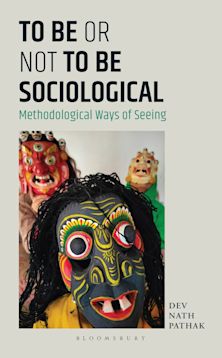A Treatise in Phenomenological Sociology
Object, Method, Findings, and Applications
A Treatise in Phenomenological Sociology
Object, Method, Findings, and Applications
This product is usually dispatched within 1 week
- Delivery and returns info
-
Free CA delivery on orders $40 or over
Description
A Treatise in Phenomenological Sociology: Object, Method, Findings, and Applications provides the first systematic approach to phenomenological sociology. Carlos Belvedere claims that phenomenological sociology is a distinctive paradigm endowed with its peculiar object, method, and stock of knowledge. He defines phenomenological sociology as a science dealing with the natural attitude of groups. When it comes to its method, he describes the actual, centenary use of the epoché, the eidetic variation, and constitutional analysis in the practice of classical and contemporary social thinkers. Finally, he collects a wealth of precious findings in the history of phenomenological sociology, which starts with the ego agens as the substratum of social life, then goes on to consider higher level strata such as pragmata, habitualities, social personalities, and institutions. He argues that social behavior can take different forms, subjective as well as objective, because it can experience a wide range of transformations thanks to specific qualities of pragmata, such as reiterableness and transferability.
Table of Contents
Chapter One. The Philosophical Bases of Phenomenological Sociology
Chapter Two. The Subject Matter of Phenomenological Sociology
Chapter Three. The Specific Method of Phenomenological Sociology
Chapter Four. Some Fundamental Findings in Phenomenological Sociology
Epilogue. A Manifesto for Phenomenological Sociology
Product details
| Published | Mar 03 2022 |
|---|---|
| Format | Hardback |
| Edition | 1st |
| Extent | 134 |
| ISBN | 9781666906103 |
| Imprint | Lexington Books |
| Dimensions | 237 x 160 mm |
| Publisher | Bloomsbury Publishing |
Reviews

ONLINE RESOURCES
Bloomsbury Collections
This book is available on Bloomsbury Collections where your library has access.


































